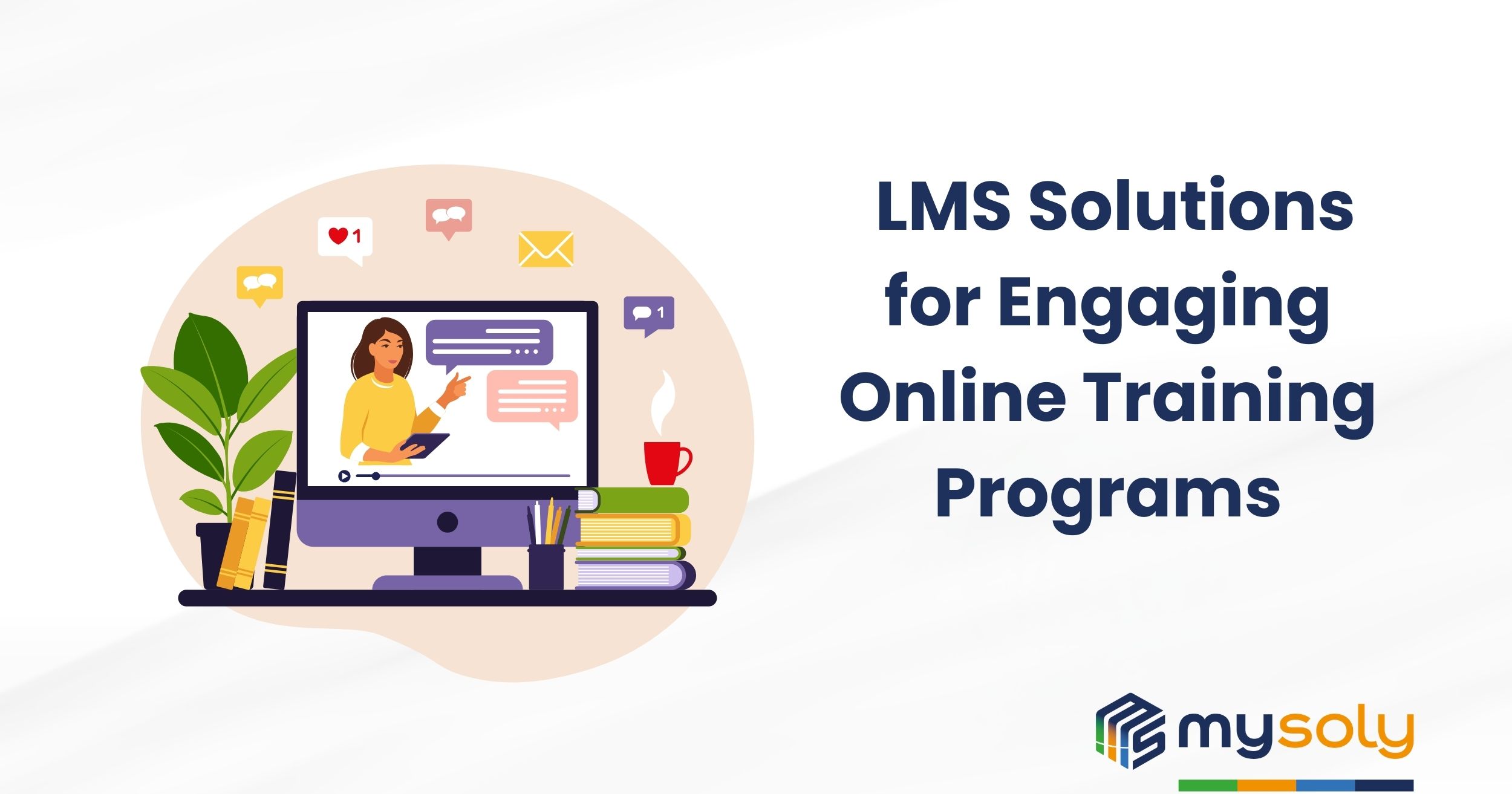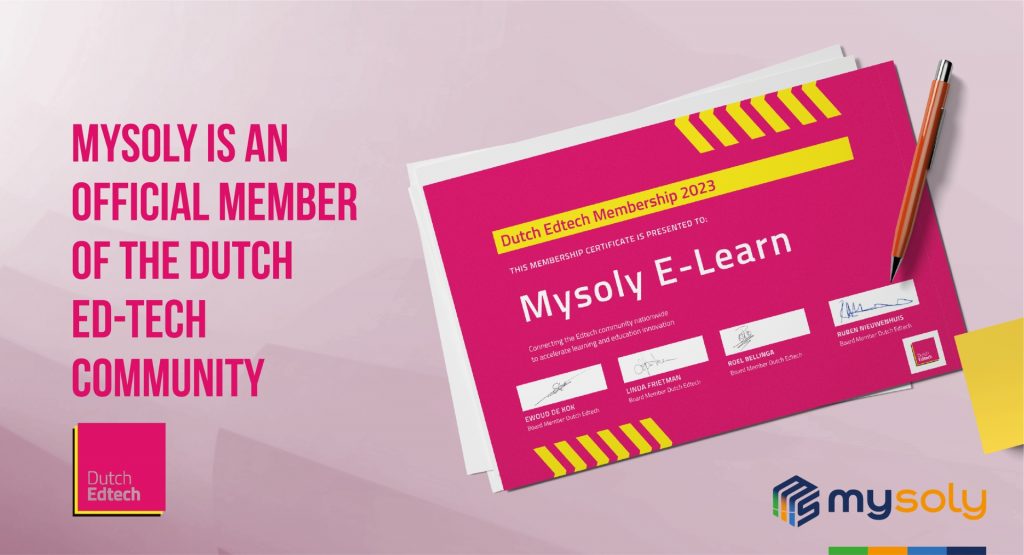AI-based Multilingual LMS Solutions for Engaging Online Training Programs
In today’s digital age, Learning Management Systems (LMS) have become essential for organizations aiming to deliver structured, engaging, and impactful training programs. Whether you’re a business training employees or an institution supporting professional development, an LMS provides the tools to streamline learning, enhance engagement, and measure success effectively.
If your organization plans to offer online courses similar to those on platforms such as Coursera or Udemy, understanding the key features of an LMS is critical. Because a quality LMS enables you to design interactive, efficient, and scalable training programs while addressing your workforce’s or learners’ specific needs.
At Mysoly, we specialize in creating tailored LMS solutions that empower organizations to elevate their training initiatives. Our systems are designed to meet the demands of B2B clients. And, they offer professional-grade tools for onboarding, upskilling, and continuous development.
In this blog, we will delve into the essential features that make an LMS effective. Also, we demonstrate how Mysoly’s solutions stand out in the competitive landscape, and share insights on how you can transform your organizational training experience.
Key Components of an Effective LMS for Organizations
A well-designed Learning Management System (LMS) does more than host content. It empowers organizations to create, organize, and analyze training materials while delivering an engaging experience for learners. So, an LMS must offer essential features tailored to organizations’ unique needs. So, it supports organizations’ unique goals.
1. Simplified Content Creation
Content forms the foundation of any successful training program. Therefore, quality LMS enables organizations to develop, structure, and present content seamlessly. Training materials are built using smaller units, called items, that can include text, videos, quizzes, or tasks.
Here are some key item types for crafting engaging training:
- Informational Items: Use text, images, or videos to convey essential knowledge.
- Task Items: Assign practical exercises with step-by-step instructions to promote hands-on learning.
- Open-Text Items: Encourage critical thinking by prompting learners to write essays or share insights.
- Yes/No Items: Keep learners engaged with quick, simple questions.
- Emoji Items: Make feedback enjoyable with expressive emoji-based interactions.
- Scoring Items: Allow learners to self-evaluate and track their progress.
These options let you build dynamic courses that align with your training goals.
2. Structured Learning Flows
Organizing content is crucial for learner engagement. So, an LMS should enable users to group related items into flows that create a logical sequence. Flows guide learners step-by-step through topics, ensuring a smooth progression.
For example, in a workplace wellness course, flows could include:
- 1. Week: Understanding Stress
- 2. Week: Building Resilience
- 3. Week: Healthy Work Habits
Flows also simplify complex subjects, keep learners focused, and help track progress.
3. Comprehensive Training Modules
Modules combine multiple flows into a cohesive training package. They are designed to achieve specific objectives, such as mastering a skill or preparing for certification.
An LMS allows users to:
- Group flows into modules based on training objectives.
- Schedule module releases for timely delivery.
- Monitor learner outcomes through structured modules.
This feature ensures the training is scalable and results-oriented.
4. Interactive Tools and Instant Feedback
Engagement is key to effective learning. Therefore, an LMS should offer tools that make training interactive and provide actionable insights.
Key interactive features include:
- Entertaining Flows: Add videos, audio, or gamified elements to make training fun.
- Feedback Flows: Gather learner suggestions to refine courses continuously.
- Test Flows: Also, use quizzes or self-assessments to measure understanding and retention.
These tools enhance participation while giving instructors valuable data for improvement.
5. Customization and Branding
On the other hand, an LMS should reflect the organization’s identity. Because personalization builds credibility and strengthens the brand.
With an LMS, organizations can:
- Add their logo, brand colors, and custom themes.
- Use templates to maintain a professional look across all courses.
- Also, offer multi-language support to cater to diverse learners.
Customization ensures the LMS aligns with the organization’s corporate image and improves user experience.
Why choose an LMS for organizations’ needs?
An LMS is more than a platform—it’s a solution to optimize learning, save time, and achieve better results. Thanks to its features designed for businesses, it streamlines training processes and drives measurable outcomes.
At Mysoly, we create LMS solutions tailored to organizations’ unique needs. Whether for onboarding, upskilling, or compliance training, we help organizations deliver exceptional results.
Contact us today to elevate your training programs!
How Mysoly Stands Out in LMS Solutions
At Mysoly, we believe every organization deserves an LMS that meets its unique needs. Here’s why our LMS solutions stand out:
1. Simple and Intuitive Design
Creating and managing courses with Mysoly is effortless. Our LMS solutions offer a drag-and-drop interface, enabling users to design flows, items, and modules in minutes. So, administrators can easily manage content and user roles without technical expertise.
2. Automation at Its Best
Repetitive tasks can be time-consuming. Mysoly’s LMS solutions automate course scheduling, user notifications, and performance tracking processes. This ensures a smooth workflow for administrators and keeps learners informed.
3. Powerful Analytics Tools
Measuring success is crucial. Mysoly’s advanced analytics provide detailed reports on user performance, module completion rates, and time spent on tasks. These insights help organizations refine their training and achieve better results.
4. Role-Based Access Control
Our LMS allows organizations to assign custom roles and permissions to users. Trainers, learners, and managers can have tailored access, ensuring they see only the tools and content relevant to their roles.
5. Industry-Specific Solutions
Mysoly designs LMS platforms for diverse industries, including healthcare, education, integration and inclusion, language learning, and corporate training. Mysoly’s LMS solutions adapt to organizations’ unique needs such as training medical staff, educating patients, or employee onboarding.
6. Multilingual Support
Communication barriers shouldn’t hold back learning. Mysoly’s LMS solutions offer multilingual support, making it easier for global teams, diverse learners, and underserved communities to access content in their preferred language.
Take the Next Step with Mysoly
Are you ready to transform your training programs with an advanced LMS? Mysoly’s LMS solutions provide everything you need to create professional, engaging, and efficient online courses.
Let us help you design a platform that meets your training goals and supports your learners every step of the way. With Mysoly, building a training program is just a click away.
Discover the difference today and unlock the full potential of your online training!



